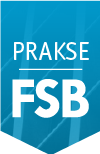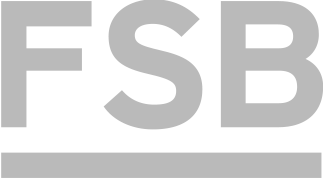International Exchange
Course details
Student Mobility > Programmes and Courses > Courses in English > Course detailsEuropean Global Product Realization Course I
- Teaching: Completely taught in English
- ECTS: 4
- Level: Graduate
- Semester: Summer
- Prerequisites:
- Passed exam "Product development".
- Load:
Lectures Exercises Laboratory exercises Project laboratory Physical education excercises Field exercises Seminar Design exercises Practicum 15 0 30 0 0 0 0 0 - Course objectives:
- The Global Product Realization (GPR) course is an academic virtual enterprise, consisting of four universities from Milano, Wienna, Ljubljana and Zagreb and one industrial partner. The human resources of the academic enterprise are the academic instructors, university students and company specialists. The enterprise is formed for one study semester. The primary goals of the enterprise are to gain the professional and communication knowledge and the solution of the practical problem, assigned by the partner company. The people involved in the EGPR course will be brought together by advanced communication means, where videoconferencing is considered as the key communication tool. The students will gradually gain knowledge by attending lectures, given by renowned professors and other experts and professionals. Student international teams will be formed to bring together their knowledge from different fields to try to solve the problems arising from the assignment. The teams will then elaborate and present their research work during common sessions. At the end of the semester, students will develop physical prototypes
- Student responsibilities:
- Grading and evaluation of student work over the course of instruction and at a final exam:
- During the semester students are working on project which has three review points. On each review point the students (teams) have to present results of their work in that particular project phase. They have to make an extensive report and deliver the presentation through videoconferencing equipment. On final workshop students are making the developed product prototype in cooperation with industrial partner. Every student team has one teacher which acts like a team "coach" - continuously monitoring and advising the teamwork as a whole and the work of each student individually.
- Methods of monitoring quality that ensure acquisition of exit competences:
- Students activities are continuously monitored, surveys, the quality of developed prototype.
- Upon successful completion of the course, students will be able to (learning outcomes):
- By mastering the course the student will improve the following skills: - communication in egnlish within teamwork in multicultural and multidisciplinary environment - active usage of asynchronous and synchronous communication tools - presentation abilities - graphic and speech - organisation abilities by planning and managing a real project - experimental skills are being imporved by product prototype production - analysis of real problems together with industrial companies increases the number of different examples and problems for better mastering and understanding of basic engineering and natural sicence knowledge - social skills through training of dislocated individuals to work and learn together using videoconferencing equipment - searching and integrating of knowledge necessary for problem solving Also the student will be qualified: - to generate and select conceptual solutions of technical system and to make production documentation in the framework of dislocated teamwork and in cooperation with dislocated company.
- Lectures
- 1. Course introduction Students familiarization, infrastructure and the course procedure
- 2. Web based communication and work in virtual teams Industrial partner company presentation
- 3. Design project task definition and clarification
- 4. Fuzzy front end: Why is it necessary and how we do it?
- 5. Research methods for successful product innovation
- 6. Product development processes, product characteristics and realization principles in global environment
- 7. Customer research
- 8. How to make a good podium presentation.
- 9. First project review
- 10. Lecture focused to specific requirements and functions of product being designed
- 11. Creativity in design
- 12. An Engineers guide to Intellectual Property Law (IP) & search IP database
- 13. Economy and costs in design
- 14. Interaction between user and device: parameters for design
- 15. Style studies, industrial design thinking
- Exercises
- 1. Introduction to team meetings - getting to know each other
- 2. Familiarization with hardware equipment and software tools for VC meetings and team collaboration.
- 3. Clarifying the design task, choosing the team leader, assigning the roles to team members
- 4. Market and customer research, finding the possibilities for innovation
- 5. Brainstorming, generating innovations, analyzing research results
- 6. Brainstorming, generating innovations, analyzing research results
- 7. Preparing report and presentation for 1st project review
- 8. Preparing report and presentation for 1st project review
- 9. First project review
- 10. Analysis of the feedback on first project review
- 11. Selecting and defining the design problem for the second project phase
- 12. Conceptual design - defining the list of requirements for selected design problem
- 13. Conceptual design - creation of morphological matrix
- 14. Conceptual design - creation of morphological matrix
- 15. Conceptual design, evaluation of 3-4 concepts.
- Compulsory literature:
- Ulrich, Eppinger: Product Design and Development, McGrawHill, 2004
Otto, Wood Product Development, Prentice Hall, 2001
B. Prasad: "Concurrent Engineering Fundamentals: Volume II: Integrated Product Development"; Prentice Hall, 1997.
J. Usher: " Integrated Product and Process Development: Methods, Tools, and Technologies"; Wiley 1998.
Crawely F. E., Malmquist J., Ostlund S., Brodeur D. R. (2007) Rethinking Engineering Education - The CDIO Approach, Springer Science + Business Media, LLC - Recommended literature:
- All lectures, additional materials and guidelines are available on server on Mechanical engineering faculty in Ljubljana https: //bscw.lecad.fs.uni-lj.si/






